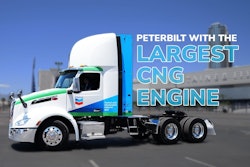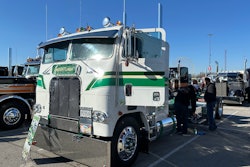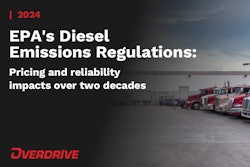After a “false start” rebound in 2003, trucking can expect a stronger and more sustained recovery this year and beyond, forecasts Bob Costello, chief economist of the American Trucking Associations.
“This industry’s definitely back,” said Costello, addressing motor carrier executives in May at the Randall Trucking Symposium 2004 in Tuscaloosa, Ala. He cautioned that continually rising costs will counter much of the strong demand for trucking.
Costello said manufacturing productivity should grow as much as 5.5 percent this year and up to 6 percent next year. Factory orders for durable goods are up 17.5 percent from a year ago.
One clear sign that manufacturing needs to increase – and will do so on a longer basis than last year – is that inventories are depleted. The ratio of manufacturing inventory to sales is virtually flat, “the lowest it’s ever been in history,” Costello said.
Truck tonnage in the first quarter of this year is 7 percent higher than a year ago. “The talk of so many carriers is it’s only getting stronger,” Costello said. “Truck tonnage is definitely going to be over 6 percent growth this year,” Costello said.
Large carriers were the first to bounce back after a downturn that saw thousands of carriers go out of business. But now there are signs that small carriers, too, are getting more business. Trucking lost a lot of freight to the railroads during the downturn, but there are signs of freight shifting back to trucking.
All carriers will have to deal with the rising costs of insurance, driver wages, fuel and equipment, as well as lost productivity due to the new hours of service.
Not only are fuel prices at record highs, but the price volatility of recent years appears to be here to stay. The difference between the average national price and recent prices on the West Coast has increased dramatically due to California’s “boutique” fuel requirements, and the lack of a single national fuel standard compounds problems for the industry. “We need a good energy policy coming out of Washington,” he said.




